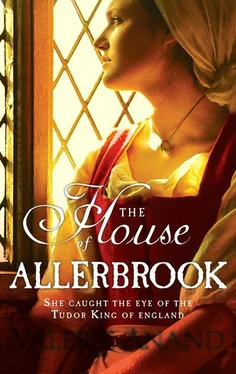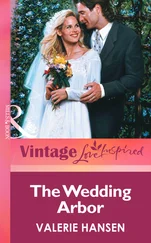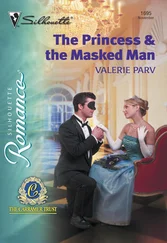Rooms must be dusted, clothes mended, onions peeled, loaves shaped, pots stirred, fish gutted, stores counted, floors swept, dishes washed, guests waited on, and Sybil was called upon to perform these tasks, for all the world as though she were a maidservant instead of a kinswoman.
Owen belonged to a consortium of merchants, but he had a ship of his own and often sailed abroad to buy dyes and spices and bales of silk in person, rather than leave it to agents. He and Idwal were often away from home on trading expeditions, and the first time the two of them set off, Sybil hoped that there might be less to do. She was wrong. Left in command, Katherine became not so much a conscientious housewife as a slave driver.
When the men were away, she said, that was the time to get some real work done. New shirts must be made for husband and son, and a spell of spring sunshine inspired her to have all the linen in the house, both bed linen and undergarments, thoroughly washed and put out to dry.
Never before had Sybil been asked to work so long or so hard. At home she sometimes helped in the kitchen and dairy, but she had had time to herself to enjoy books—poetry, travel and devotional works. In the evenings they would all take turns with the lute and there might be dancing or cards or backgammon.
She had realized that life at court would be different, but there she had hoped to find glamour, to wear fashionable clothes, to attend masques and tournaments. There was no glamour and precious little merriment in her life now. There wasn’t even time to read. She had pushed two books into her panniers, but she had not had a moment to open either of them.
At times she was so tired that she could scarcely force her feet to walk, and she would stumble off to bed as soon as she could after supper had been eaten and she had helped to wash the platters. And oh, the aching, desperate need for somebody to smile at her.
She was not asked to do heavy tasks like carrying full buckets about, but it seemed to her that the Lanyons were still, stealthily, creating conditions which might bring on a miscarriage. And that Francis had probably instructed them to do so.
Her back ached constantly and the calling of the gulls as they wheeled and soared above Lynmouth, free as the wind and gliding on it with outspread wings, was like mocking laughter. Now, lying on her pallet at the end of another dreadful day in which one menial task had followed another in pitiless procession, Sybil tossed unhappily, unable to find a position which would accommodate her swelling abdomen in comfort.
“All this,” she said aloud, “all this just because that Andrew Shearer got me giggly at his son’s christening party, plying me with cider, and then said, come and see how the red calf ’s grown, that was born so late this year. I don’t even like Andrew Shearer!”
Not that Shearer was ugly. He had flint-coloured eyes but they could glint with amusement, and he had a knack of fixing his gaze on someone in a way that made the someone feel as though they were the only person in his world. His narrow face was shapely enough, and on the night of the celebration his black hair, though overlong as usual, wasn’t untidy as it normally was, but carefully combed.
He had been persuasive, refilling her tankard with cider and looking at her, watching her, with those bright, flinty eyes. Then, before she knew what was happening, he’d put an arm around her, steered her out of the room where the others were dancing, across the central passage and into the adjoining byre, dark except for a glimmer of starlight through a gap under the eaves and full of the warm, pungent smell of cattle and horses.
There’d been no more talk of the red calf then—not that they could have seen it in the gloom, anyway. Instead, Andrew Shearer had put his mouth over hers and gripped her tightly and somehow slid them both down onto a pile of straw in a vacant stall.
She’d been fuddled and silly. The Shearers’ home-brewed cider was very strong and she knew she had drunk too much of it. She managed a feeble protest, of which he took no notice. He murmured soothingly and told her that she was adorable and petted her in a way which made her feel very strange, as though she wanted him to go on doing it, and then she’d been squashed beneath him and something rather painful but also rather exciting was happening….
And then it was all over, and he was kissing her and saying Thank you, sweeting. Now we’d better get back to the others before you’re missed , and a moment later they were back in the main room on the other side of the passageway.
At once Harry Hudd, that awful old man from Rixons, who smelt and had gaps in his teeth and a wind-reddened face that went all shiny when he drank cider and almost purple when anything annoyed him, was asking her to dance and Andrew was laughing and pushing her at him, and there she was, dancing, though she felt very peculiar, slightly sore and oddly wet. And that was that. Except that it wasn’t because the next time she should have started a course, she didn’t.
Such a little thing. A few foolish moments in the dark byre with its animal smell and the rustle of shifting hoofs, and the gleam now and then of an incurious equine or bovine eye. And now she’d lost both her home and her chance of a thrilling life at court, and come to this.
She had been given a pillow, stuffed with crackly straw but at least covered in smooth linen because that was the only kind of linen ever found in the Lanyon household. She drew it to her, put her arms around it as though it were a dear friend, pressed her nose into it and cried.
At Allerbrook Jane, too, had found her daily life subject to change. Eleanor had suddenly begun to discourage her from spending too much time in the open air. “If you’re going to court one day, we don’t want you having a sunburnt complexion. You’ll need to look like a lady. Ladies have pale skin and soft hands and keep their hair tidy. You should be practising your embroidery and music. The standard will be high at court.”
However, on the July day when Francis went out early with the young groom Tim Snowe and wouldn’t tell Jane where he was going (though Eleanor knew, to judge from her secretive smile), no one seemed to mind what Jane was doing. Eleanor was asking Peggy and the maids to help her move stools and tables about in one of the downstairs rooms off the hall, but she didn’t seem to want her young sister-in-law at all.
Jane promptly seized the chance to be out of doors, tossing grain to the chickens and geese and searching for eggs, and stealing a walk up to the ridge.
She was outside again, giving the poultry their evening meal and wondering whether Francis would be back for supper, when he came riding up from the combe on Copper, followed by a surprising procession.
Just behind him was an elderly man she had never seen before, on a stout, mealynosed Exmoor pony. Next came Tim Snowe, on the Allerbrook pony he usually used and leading a strange pack mule. Behind the mule came two packhorses, each carrying a large package done up in hides and rope. The horses were led by a groom apiece, trudging along on foot and checking every now and then that the package in his care wasn’t slipping.
“What in the world…?” said Jane, going to the gate, her grain basket on her arm.
“Oh, there you are, Francis! I was beginning to be anxious, but I see you had to take it slowly,” said Eleanor, appearing from the house. “And is this Master Corby? Welcome, sir. I take it that the packhorses are carrying the new virginals?”
“Yes, madam,” said the elderly man. “All in good order, we hope and trust. I will assemble the instrument myself.”
“Please come in. And here is your pupil,” said Eleanor. “This is my sister-in-law, Jane Sweetwater. Make your curtsy, Jane. This gentleman is a musician by profession and he has come to teach you to play the virginals. Proficiency in music is something that you’ll need when you go to court.”
Читать дальше












